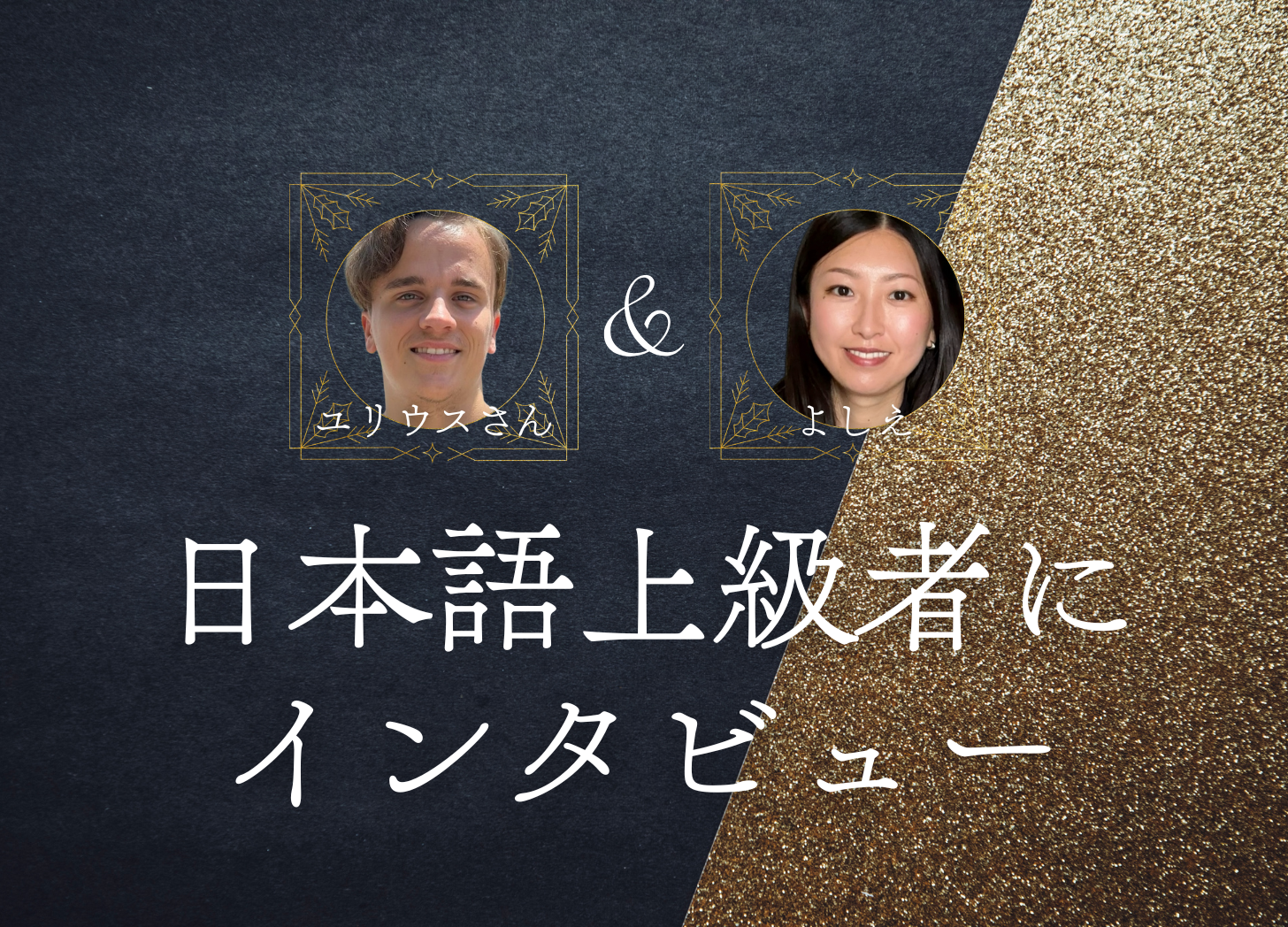Hello everyone!
Here’s our second interview with advanced Japanese speakers! Our next guest is Julius from Germany.
He holds JLPT N1, shares his study tips and more on Instagram, and offers Japanese coaching sessions.
Let’s explore his learning journey together!
- はじめに Introduction
- 学習のきっかけ Getting Started with Japanese
- 学習の道のり Your Learning Journey
- スキル別の学習法 Developing Specific Skills
- 上級ならではの課題と対策 Challenges at the Advanced Level
- モチベーションの維持 Staying Motivated
- 日本語と実生活 Japanese in Real Life
- 成果と達成感 Achievements and Confidence
- これから上級を目指す学習者へ Advice for Aspiring Advanced Learners
- 編集後記 Editor’s Note
はじめに Introduction

まずはじめに、お名前、出身地、母国語について教えてください。
First, could you briefly tell me your name, where you’re from, and your native language?

私はユリウスと言います。出身はドイツで、母国語はドイツ語です。
My name is Julius. I’m from Germany, and German is my first language.
学習のきっかけ Getting Started with Japanese

日本語を勉強し始めたきっかけは何でしたか?
What first inspired you to start learning Japanese?

きっかけは2019年に始めたボランティア活動でした。その時は一年間ぐらい川西市という街にある老人ホームで働いていて、日本に初めて住みました。もちろん、日本語を勉強したいという気持ちは最初からありましたが、最初は『英語でもなんとかなるんじゃないかな』と思っていました。でも実際のところ、私が働いていた職場は思ったより英語が通じない環境だったので、ドイツに帰りたくなければ日本語を勉強するしかないという状況になっていました。
It all started with some volunteer work I did in 2019. Back then, I spent about a year working at a care home in a city called Kawanishi—it was my first time living in Japan. Of course, I wanted to learn Japanese from the beginning, but at first I thought, “Maybe I can get by with English.” But in reality, hardly anyone at my workplace spoke English, so if I didn’t want to go back to Germany, learning Japanese was really my only option.

どのように学習をスタートさせましたか?使っていた教材や方法などがあれば教えてください。
How did you begin studying? Could you share what materials or methods you used at the start?

最初は主に教科書で勉強してみましたが、教科書の日本語はあまりにも硬すぎたので、すぐに諦めました。他にも色々使っていましたが、一番効果的だったのがアンキというアプリとたくさん日本語をインプットすることでした。インプットというのはアニメやYouTubeを観たり、ポッドキャストを聴いたり、本を読んだりすることです。
At first, I mainly studied using textbooks, but the Japanese in them was far too stiff and formal, so I gave up pretty quickly. I tried lots of other resources too, but what worked best for me was using an app called Anki and getting as much Japanese input as possible. By “input,” I mean things like watching anime and YouTube, listening to podcasts, and reading books.
学習の道のり Your Learning Journey

上級に到達するまでに、どのくらいの時間がかかりましたか?
How long did it take you to reach an advanced level?

多分2-3年間ぐらいだと思います。日本語を勉強し始めて3年目に日本語能力試験のN1に受かりましたが、それより早く受けても合格できたと思います。
I’d say it took me about two or three years. I passed the JLPT N1 in my third year of studying Japanese, but to be honest, I think I could’ve passed it earlier if I’d taken it sooner.

途中で苦労したことや「壁」を感じた時期はありましたか?どのように乗り越えましたか?
Were there any particular struggles or “plateaus” you hit along the way? How did you overcome them?

私の場合はせっかちな性格なので、『もっと早く成長したい』と思うことが何度もありました。そこで効果的だったのが、視点を変えることでした。将来のことはいくら考えてもすぐに変えられませんが、『今日、自分にできることは何?』と考えるようにしたら、気持ちがすこし楽になりました。
I’m naturally quite an impatient person, so there were plenty of times when I felt like, “I just want to get better faster!” What really helped me was shifting my perspective. No matter how much you think about the future, it’s not something you can change right away. But when I started asking myself, “What can I do today?,” it took a bit of the pressure off and helped me feel more at ease.
スキル別の学習法 Developing Specific Skills

語彙・文法・読解・聴解・会話など、それぞれのスキルをどのように伸ばしてきましたか?
How did you improve each area of your Japanese—vocabulary, grammar, reading, listening, and speaking?

読解と聴解はひたすらインプットしていました。読解は最初けっこう時間がかかって、いつもすぐに疲れましたが、読めば読むほどすこしずつ慣れていきました。会話は毎日友達や職場の先輩たちと練習していました。
For reading and listening, I just focused on getting as much input as I could. Reading took quite a bit of time at first, and I’d get tired really quickly, but the more I read, the more I got used to it bit by bit. As for speaking, I practised every day with friends and senior colleagues at work.
語彙はインプットするときに知らない単語の意味を調べて、その単語を使った例文をフラッシュカードに書いて、定期的に復習していました。
When it came to vocabulary, whenever I came across a word I didn’t know while getting input, I’d look it up, write an example sentence using it on a flashcard, and review it regularly.
文法は語彙のように扱っていました。それはちょっと変に聞こえるかもしれませんが、私は文法のルールをいちいち覚えようとしませんでした。私がやっていたのは文法を細かく分解して、それぞれの活用や表現をまるで普通の単語のように扱うという方法です。つまり、例文を見つけて、その例文をフラシュカードに書いて、覚えていくという感じです。
I treated grammar in the same way I treated vocabulary. That might sound a bit odd, but I never tried to memorise grammar rules one by one. What I did was break grammar down into parts and treat each form or expression like a normal word. So I’d find example sentences, write them on flashcards, and just learn them like that.

特にスピーキング力や聴解力のために効果的だった練習法があれば教えてください。
What exercises or methods were especially effective for improving your speaking and listening skills?

それもまた変に聞こえるかもしれませんが、一番効果的だったのがたくさん聞くことでした。皿洗いをしているときや、どこかに移動しているとき、部屋を掃除しているときはいつも日本語を聞いていました。それと、時間があるときはアニメやドラマをたくさん観ていました。それで聴解力が爆上がりしたし、アニメやドラマで聞いていた単語も自然と会話の中で使えるようになったのです。(もちろん、語彙の勉強もアンキを使ってやっていました。)
This might sound a bit strange too, but what helped me the most was just listening—a lot. I was always listening to Japanese while doing the dishes, commuting, or cleaning my room. And whenever I had free time, I’d watch loads of anime and dramas. That really boosted my listening skills, and before I knew it, I was able to use the words I’d picked up from anime and dramas naturally in conversation. (Of course, I was also studying vocabulary using Anki.)

読解力を伸ばすために読んでいた本や記事などはありますか?
Are there any books, articles or other materials you found helpful for developing your reading skills?

本がまだ難しかったときはドラマを ”読んでいました。” つまり、ドラマを観るときに日本語の字幕を付けて読んでいました。特に『龍が如く』のような長期的で、一貫して同じ表現が繰り返して使われているシリーズを見るのがおすすめです。
When books still felt too difficult, I used to “read” dramas—meaning I’d watch them with Japanese subtitles and read along. I especially recommend long-running series like Like a Dragon (Ryu ga Gotoku), where the same expressions come up again and again throughout the story.
上級ならではの課題と対策 Challenges at the Advanced Level

上級レベルになってから、成長を感じにくくなることはありましたか?
Did you ever feel like you weren’t making progress once you reached a higher level?

ありました。今でも『インプットしても最近あまり変わってないな』と思うことが時々あります。でもそれはただの思い込みで、冷静に俯瞰してみると、『確かに、去年と比べたらまたすこし成長した』と感じます。
Yeah, definitely. Even now, there are times when I feel like, “I’ve been getting all this input, but I don’t think I’m improving much lately.” But that’s usually just in my head. When I take a step back and look at the bigger picture, I can see that I’ve actually made progress—like, “Yeah, I’ve definitely improved a bit compared to last year.”

「自然な日本語」を身につけるために意識していることや工夫していることはありますか?
What do you do to make your Japanese sound more natural? Are there any habits or techniques you use?

自然な日本語を身につけるには、自然な日本語をインプットすることが大切だと思います。つまり、台本なしの日本人同士の会話を聞いたり、観たりすることです。ポッドキャストや『テラスハウス』みたいなリアリティ番組はけっこうおすすめです。
To develop natural Japanese, I think it’s important to get lots of natural Japanese input. In other words, listening to and watching unscripted conversations between native speakers. Podcasts and reality shows like Terrace House are pretty good for that.
モチベーションの維持 Staying Motivated

勉強のモチベーションが下がったときは、どう対処していましたか?
How did you stay motivated when you felt discouraged or hit a slump?

私の場合、モチベーションが下がるときは、だいたい成長できていないと感じるから落ちこむパターンが多いです。その時は今の自分のレベルを、一年前の自分や勉強を始めた頃の自分のレベルと比較するようにしています。そうやって俯瞰してみると、『ちゃんと成長している』と改めて実感できるし、ほとんどの場合はそれでモチベーションを取り戻せます。
For me, when my motivation drops, it’s usually because I feel like I’m not making progress. At times like that, I try to compare my current level with where I was a year ago or when I first started studying. Taking that broader view helps me realise that I am making progress, and most of the time, it helps me get my motivation back.

長期間学習を続けるコツは何だと思いますか?
In your opinion, what’s the key to continuing Japanese study over the long term?

その質問に関しては、皆さんに試してみてほしいことが二つあります。まず一つ目は他人と比較しないことです。人によって、日本語学習に使える時間や、人生における優先順位はそれぞれ違うので、ネットで最近よく見かける『この方法を使ったら六か月以内にネイティブのように話せるようになる』と断言している人たちと自分を比べたところで、得するものは何もありません。むしろ、自分のモチベーションを下げてしまう可能性すらあるので、唯一比較すべき相手は過去の自分です。
Regarding that question, there are two things I want everyone to try. First, don’t compare yourself to others. Everyone has different amounts of time they can dedicate to studying Japanese and different priorities in life. So, comparing yourself to those people you often see online who claim you can speak like a native in six months using their method won’t do you any good. In fact, it might even lower your motivation. The only person you should compare yourself to is the past version of yourself.
それともう一つは、小さな目標設定から始めることです。例えば、『2年間以内にネイティブのように話せるようになる』や『できるだけ早くN1に合格する』といった目標設定は、曖昧で、かえって自分を焦らせてしまうことがあるので、『毎日日本語に触れる』というシンプルな目標に変えてみてはいかがでしょうか?このような目標はより具体的で、達成しやすいし、継続力にも繋がります。それさえ習慣化できれば、大きく成長する可能性は十分ありますので、最初は10-15分でも大丈夫なので、ぜひ始めてみてください。
And the second thing is to start with small goals. For example, goals like “become fluent like a native within two years” or “pass the N1 as quickly as possible” are pretty vague and can actually make you feel more stressed. Instead, why not try a simple goal like “expose myself to Japanese every day?” Goals like this are more concrete, easier to achieve, and help you build consistency. Once that becomes a habit, there’s a good chance you’ll make big progress. Even just 10 to 15 minutes a day is fine to start—so definitely give it a go!
日本語と実生活 Japanese in Real Life

日本人と話す中で、特に印象に残ったエピソードはありますか?
Have you had any memorable experiences speaking with Japanese people?

老人ホームで働いていたときの職場には、今でも連絡を取り合っている仲のいい先輩が何人かいます。去年、日本にまた留学していたときに、その先輩たちと久しぶりに会って、お酒を飲みながら夜中まで昔話をしたり、人生について語り合ったりしました。私が彼らに初めて出会ったときは、一切日本語を話せなかったにも関わらず、彼れらがいつも私を励ましてくれたり、私が困ったときに手伝ってくれたりしていたので、日本語を勉強することでその恩を返したいという気持ちがずっと私の原動力になっていました。そんな彼らと去年会ったときは日本語を勉強してから初めて『努力が報われた』と感じました。
When I was working at the care home, I made some good friends with a few senior colleagues, and we still keep in touch even now. Last year, when I went back to Japan for another study trip, I met up with them after a long time. We spent the night drinking and reminiscing about old times, and also talked about life. When I first met them, I couldn’t speak any Japanese at all, but they always encouraged me and helped me whenever I was in trouble. Because of that, studying Japanese and being able to repay their kindness has been a big motivation for me all along. When I met them last year, it was the first time I truly felt like my hard work had paid off.

日本に住んだり、働いたりした経験はありますか?それが日本語力に与えた影響は?
Have you lived or worked in Japan? If so, how did it impact your Japanese ability?

私は合計2年間ぐらい日本に住んでいたし、アルバイトをした経験もあります。やはり、自分が勉強している言語の国に住むと、一番上達しやすいですが、それ以上に印象に残っているのはアルバイトしていたときの経験です。なぜかというと、仕事やアルバイトでは、日本語がただの勉強の対象ではなく、人と関わるためのツールとして使われるからです。そのため、あらゆる場面で臨機応変に対応することが求められていて、実践的な日本語が身につきます。初めてのアルバイトのときはすごく緊張しましたが、今振り返ってみると、それはとてもいい練習になったと言えるので、皆さんにとっても貴重な経験になると思います。
I lived in Japan for about two years in total and also had some part-time jobs. Of course, living in a country where the language you’re studying is spoken makes it easier to improve. But even more memorable for me were the experiences I had while working part-time. That’s because, at work or in a part-time job, Japanese isn’t just something you study—it’s a tool you use to interact with people. So, you’re required to adapt flexibly to all kinds of situations, which really helps you develop practical Japanese skills. I was really nervous when I started my first part-time job, but looking back now, it was a great way to practice. I think it can be a valuable experience for anyone learning Japanese.

日本語を学んで、考え方や価値観が変わったと感じることはありますか?
Has learning Japanese changed the way you think or view the world?

日本語を勉強して、日本人とたくさん関わるようになってから、自分の振る舞いや考え方がすこし日本人らしくなったように感じます。例えば、私は笑うときにいつもつい手を叩いてしまうのですが、ドイツ人は絶対にそんなことしません笑。それ以外にも、寝る前にお風呂に入るところや、日本人と初めて話すときに『ため語でいいよ』と言われたにも関わらず、どうしても敬語を使ってしまうところが、自分でも『日本人っぽいな』と思います。
Since I started studying Japanese and interacting a lot with Japanese people, I feel like my behaviour and way of thinking have become a bit more Japanese. For example, I always find myself clapping my hands when I laugh, but Germans would never do that! (LOL) Also, things like taking a bath before going to bed, or when I’m told by a Japanese person that it’s okay to speak casually but I still end up using polite language—those are moments when I think to myself, “Yeah, that’s very Japanese of me.”
成果と達成感 Achievements and Confidence

「日本語ができてよかった」と思った瞬間はどんなときでしたか?
Can you tell me about a moment when you felt truly glad you could speak Japanese?

日本に留学していたとき、母が一回遊びに来てくれたことがありました。その時は、母を色んなところに案内することができたし、観光客は中々できないようなローカルなことも経験させてあげることができました。それが母にとって最高の思い出になったので、改めて『日本語を話せてよかった』と思いました。
When I was studying in Japan, my mum came to visit me once. I was able to show her around lots of places and even let her experience some local things that tourists usually don’t get to do. Since it became one of her best memories, I really felt grateful again that I could speak Japanese.

「自分は上級者だ」と実感できた体験があれば教えてください。
Was there a specific time when you thought, “I’ve reached an advanced level”?

留学していたときに、日本人向けの経済学をいくつも受講していて、すべての試験に受かったときにそう思いました。(減価償却や貸借対照表という単語を聞くたびに、今でも背中に悪寒が走る気がします笑)
When I was studying abroad, I took several economics courses aimed at Japanese students, and I felt that way when I passed all the exams. (Even now, every time I hear words like 減価償却 – genka shookyaku “depreciation” or 貸借対照表 – taishaku taishoohyou “balance sheet,” I still get chills down my spine—haha.)

日本語を使って仕事をした経験や、専門的な内容を扱った経験はありますか?
Have you ever used Japanese in a professional setting or to discuss specialist topics?

私は2023年から2024年まで下関市立大学という大学で日本語で経済学を勉強していて、試験を受けたり、クラスメイトとディスカッションもしたりしていました。それ以外は日本のゴールドジムで働いていた経験もあります。その時はご利用者さんの相談に乗ったり、トレーニングの指導をしたりしていました。特に私のジムでは敬語の使い方がとても重要視されていて、すこしでも間違えると注意されるほどでした。最初はかなり怖かったですが、今振り返ってみると、とてもいい練習になったと思います。
From 2023 to 2024, I studied economics in Japanese at Shimonoseki City University, where I took exams and participated in discussions with my classmates. Besides that, I also worked at a Gold’s Gym in Japan. There, I helped customers with their concerns and gave training guidance. Polite language was especially important at my gym—even the slightest mistake would be corrected. At first, that was pretty intimidating, but looking back now, I think it was really good practice.
これから上級を目指す学習者へ Advice for Aspiring Advanced Learners

勉強していて「もっと早く知っていればよかった」と思うことがあれば、ぜひ教えてください。
Is there anything you wish you had known earlier in your learning journey?

もし最初から、今のようにインプットにフォーカスした方法で勉強していたら、もっと早く上達できていたと思うことが、これまでに何回もありました。たからこそ、皆さんにもぜひ試してみてほしいです。
There have been many times when I thought that if I had focused on input the way I do now from the very beginning, I could have improved much faster. That’s exactly why I really want everyone to give this method a try.

これから上級を目指す学習者に、アドバイスをお願いします。
What advice would you give to learners aiming for an advanced level?

上級レベルに達するには、本語を見る観点を変える必要があると思います。つまり、日本語をただの勉強の対象としてではなく、日本語を通して人生に挑戦するためのツールとして捉えることが大切だと思います。例えば、日本語で新しい趣味を見つけたり、スピーチやデジタルデザインといったスキルを日本語で学んだりすることです。
I believe that to reach an advanced level, you need to change the way you view Japanese. In other words, instead of seeing Japanese just as something to study, it’s important to see it as a tool to take on new challenges in life. For example, you might find a new hobby through Japanese or learn skills like speech or digital design using Japanese.
編集後記 Editor’s Note
インタビューを通じて見えた、ユリウスさんの学習スタイルの特徴や、他の学習者が参考にできるポイントを編集者目線でまとめるセクションです。
A brief summary from the editor highlighting key insights from the interview—especially useful study tips or mindset shifts that may benefit other learners.
まず、ユリウスさん、お忙しい中インタビューを受けてくださり本当にありがとうございました!
First of all, Julius, thank you so much for taking the time out of your busy schedule to do this interview!
日本への留学、そして勤務経験のあるユリウスさんならではの経験談と、誰でもいますぐ取り入れられる学習のヒントがたくさんありました。
With his unique experience of studying and working in Japan, he shared many valuable insights and practical learning tips that anyone can start applying right away.
私の方からは、ユリウスさんがお話ししてくださったことの中から、マインドセットと具体的な学習方法に分けて少し話したいと思います。
From my side, I would like to talk a little about what Julius shared, dividing it into mindset and specific study methods.
まず、マインドセットについてです。「長期間学習を続けるコツ」について伺ったときに、「他人と比較しないこと。唯一比較すべき相手は過去の自分だ」という答えが返ってきました。
First, regarding mindset. When I asked Julius about tips for sustaining long-term study, he replied, “Don’t compare yourself to others. The only person you should compare yourself to is who you were in the past.”
素晴らしいアドバイスですね。なぜなら、SNSなどで語学学習について発信している人が山ほどいる中で、まだ勉強を始めて日が浅いのにペラペラに話せる人や、イントネーションや抑揚までマスターしてしまっている非ネイティブを見たら、嫌でも自分と比べてしまうものだと思うからです。
This is truly excellent advice. The reason is that, with so many people sharing language learning content on social media, when you see someone who has only just started studying but already speaks fluently, or a non-native who has mastered even intonation and pitch, it’s almost impossible not to compare yourself to them.
私自身、そうです。
I can definitely relate to that myself.
みんな頭では「他人と比べたってしょうがない」とわかっていると思うのですが、なかなか割り切れないときもあるのではないでしょうか。
I think everyone knows logically that comparing yourself to others is pointless, but there are times when it’s hard to let go of that feeling.
だからこそユリウスさんの言葉はとても意味があるし、上級者である彼が言うのだから間違いない、と思わせてもくれると感じました。
That’s exactly why Julius’s words are so meaningful, and because he’s an advanced speaker himself, it really convinces you that what he says is spot on.
過去の自分と比較しながら、モチベーションをキープして引き続き日本語の練習を頑張りましょう。☺︎
Let’s keep comparing ourselves to who we were before, stay motivated, and continue working hard on our Japanese practice.
次に、具体的な学習方法です。ユリウスさんは繰り返し「インプット」の大切さについてお話しされていました。
Next, regarding concrete study methods. Julius repeatedly emphasised the importance of ‘input.’
「台本なしの日本人同士の会話のような自然な日本語」という部分は、ネイティブが使う自然な日本語を覚える上で重要なポイントですね!
The idea of “natural Japanese like unscripted conversations between native speakers” is such an important point when it comes to learning the kind of Japanese that real native speakers actually use.
その他にも、日本語のドラマを見る時も、ドラマを観るのではなく「読む」。これなら勉強しているという感じではなく、楽しく自然な日本語を覚えることができるとてもいい学習方法だと思います。
Also, when watching Japanese dramas, instead of just watching them, try “reading” them. That way, it doesn’t feel like studying, and you can enjoyably learn natural Japanese. I felt this is a really effective way to learn.
また、文法の覚え方について印象的だったのが「文法のルールをいちいち覚えようせず、文法を細かく分解して、それぞれの活用や表現をまるで普通の単語のように扱う」というもの。
One thing that really stood out to me about learning grammar was Julius’s approach: instead of trying to memorise all the grammar rules one by one, he breaks grammar down into smaller parts and treats each conjugation or expression like an ordinary vocabulary word.
日本語の文法は表現的なものが多いので、この方法ならとても効果的に覚えることができそうだと感じました。
Since Japanese grammar often involves a lot of expressions, I felt this method would be very effective for memorising them.
マインドセットから効果的な学習方法まで、とても有益なお話を聞くことができました。
I was able to hear some really valuable insights, from mindset to effective learning methods.
上級を今まさに目指している皆さん、このインタビューを読んでぜひ参考にしてくださいね。
To all of you currently aiming for the advanced level, I hope you’ll find this interview both inspiring and useful.
それでは、また次のニュースレターでお会いしましょう!
See you again in the next newsletter!




コメント